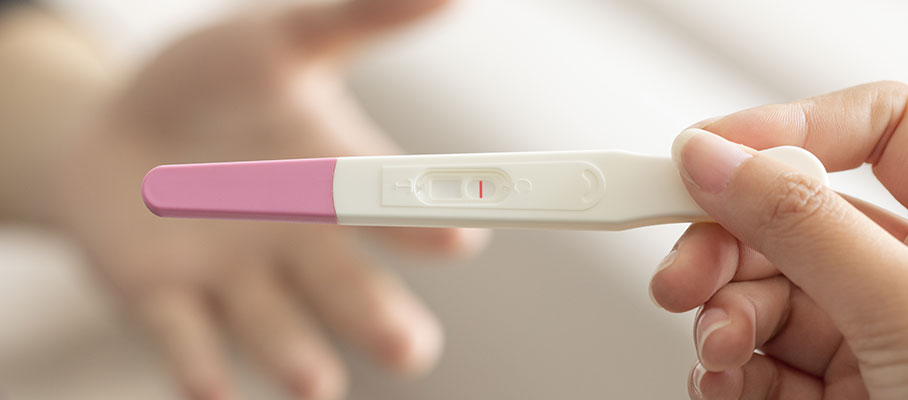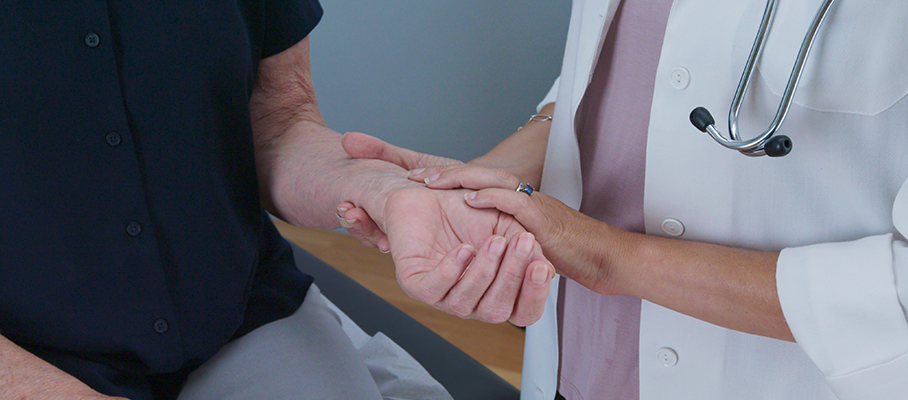health checkup for women
Burnout is Real. Expert Tips to Stay Away from Burnout
What is burnout? Burnout is a state of emotional, physical and mental exhaustion that results due to excessive and prolonged stress. You may feel overwhelmed, emotionally drained, too tired, and unable to meet your professional and personal asks. Effects of burnout spread to every area of life As the stress continues, a person affected with burnout may begin to lose interest and motivation that prompt most of us to play a certain role in the first place. It reduces productivity, leaving you feeling procrastinated, helpless, hopeless, cynical and resentful. After all, it may feel like you have nothing more to offer. This impacts your home, work and social life. Burnout can also cause long-term changes in your body that make you vulnerable to illnesses like colds and flu. Because of its many consequences, it is important to deal with burnout immediately. Chronic stress and burnout can disrupt your vital health numbers. Book a comprehensive health check now. You may be on the way to burnout if Every day is a bad day Work or household life seems like a total waste of energy Feeling tired all the time Most of your time is spent on tasks that seem either mind-numbing or overwhelming Feeling like everything you do doesn't matter or is even appreciated Physical symptoms of burnout Feeling drained and tired Frequently catching illnesses Chronic headache or muscle pain Changes in sleep habits, sleeplessness or excessive sleep Emotional signs of burnout Self-doubt Loss of motivation Feeling disconnected with others Feeling of defeat Developing a negative outlook Decreased sense of accomplishment Detachment Feeling helpless Behavioural signs of burnout Avoiding priority tasks and responsibilities Start using alcohol or drug Taking frustration on others Start making distance from others Less of accountability Procrastinating Causes of burnout Someone who is overworked- a hard worker who hasn't taken a break in years, a stay-at-home mom who does extensive household chores, and takes care of an aging parent, is more likely to get burnout. Burnout doesn't just occur due to stressful work, lifestyle and personality characteristics also contribute. In fact, what you do in your downtime and how you perceive the world can play just as big a role in causing extreme stress as the demands of work or home.1. Work related causes Lack of self-control Lacking appreciations Unclear job expectations Doing unchallenging work High pressure environment of working Long working hours over time 2. Lifestyle causes Working too much without relaxing Lack of emotional support Taking so many responsibilities, without any help from others Lack of sleep Finding you way to deal with burnout Be mindful of your mental health. Your mental health is the key driver of your performance and may cause you to get slow and less productive at work. Learn how you can help yourself recover from burnout and feel healthier and more positive by changing your directions.Researchers have found that if you follow the 3R approach, you can easily deal with burnout. Recognise: Make efforts to identify the warning sign of burnout Reverse: Undo the damage by seeking support from your loved ones and find ways to cope up with stress levels Resilience: Take care of your emotional and physical health. Tips for dealing from burnout Seek support from the right people: Burnout may cause problems to seem insurmountable and everything looks bleak. Social contact is the fastest way to calm your nervous system and relieve your stress. Try to reach out to your closest ones Be more sociable Make distance from negative people Nurture your genuine contacts Reframe your mindset: If you feel that the work you are doing is no longer giving you the same happiness as before, take some time out for yourself. Try to find aspects in the job that can make you happy. Look for balance in your professional and personal life Make some friends at job place Take a break from work for some time Understand your priorities: Take time to rethink about your hopes, goals, and dreams. Have you been neglecting something that is really important to you?This phase of burnout could be an opportunity to slow down, rediscover what really makes you happy, and give yourself time to rest, reflect, and heal. Learn how to say no Creative thinking Set time for relaxation Get enough sleep Support your energy levels with a balanced diet: What we eat has a huge impact on our lives. Unhealthy diet can result in lowering your energy levels: Minimise sugar consumption Avoid too much alcohol Avoid smoking Eat more good fats (nuts, seeds, etc.) and reduce bad fats (refined oil, packaged food items, etc.) Some of the studies have found vitamin D deficiency was more commonly found in people experiencing anxiety and low energy levels. Book a health test to check vitamin D levels here. Make yoga and exercise a priority: Meditation and exercise help in reducing your stress level in the best possible way. Aim to exercise for 30 minutes or more per day. A 10 minutes’ walk can charge your mood. You feel the sensation through your body. For example, when air touches your skin. Feel the moment and try to separate yourself from any negative, overwhelming thoughts. Burnout is a gradual process. It doesn't happen overnight, it can creep up gradually on you. Signs and symptoms may be subtle at first, but tend to get worse over time. If you pay attention and actively reduce your stress, you can prevent a major breakdown. Ignoring the symptoms will eventually cause you to enter the vicious cycle of helplessness.
Infertility in Women: Causes, Diagnosis and Prevention
Scientifically speaking, infertility is a common reproductive condition defined by the inability to have a successful clinical pregnancy after at least a year of regular unprotected sexual intercourse. It is becoming more common worldwide, especially in many urban areas where women are planning their first babies at older ages. At least 10% of women have some kind of infertility. Infertility can be of two types – primary and secondary. The term primary infertility means that a woman has never conceived and secondary infertility means that the woman has experienced a pregnancy before and unable to conceive later. While infertility causes can be difficult to diagnose, it is very crucial to get tested for regular health updates to stay in the know. Book an exclusive women’s health package here. Causes of infertility in women There are varied possible causes of infertility in women. Some possible causes of female factor infertility may include: Ovulation disorders Infrequent or no ovulation at all accounts for most cases of infertility. Several reasons such as hormonal imbalances, thyroid conditions, pituitary tumors, severe stress, substance abuse and a past eating disorder can affect ovulation. Polycystic ovary syndrome (PCOS), the most common cause of female infertility, causes a hormone imbalance, which affects ovulation. Hypothalamic dysfunction can significantly affect female fertility. Follicle-stimulating hormone (FSH) and luteinizing hormone (LH) produced by the pituitary gland are responsible for stimulating ovulation each month. Emotional distress, extreme high or extreme low body weight, or a recent significant weight gain or loss can affect production of these hormones and cause ovulation disorders. Premature ovarian failure or primary ovarian insufficiency occurs when the ovaries stop working normally before the age of 40. The ovaries don’t produce eggs and normal amounts of the hormone estrogen and this condition often leads to infertility. Hyperprolactinemia, excess production of prolactin by pituitary gland, can reduce estrogen production and lead to infertility. Uterine causes Several uterine causes can prevent egg implantation or increase the risk of miscarriage. Benign polyps or fibroids can block fallopian tubes or interfere with egg implantation, affecting fertility. Polyps and fibroids can form on their own at any time, whereas other uterus abnormalities, such as an unusually shaped uterus, are present at birth. Tubal factors Blocked fallopian tubes block the passage of the fertilized egg into the uterus and prevent sperm to get to the egg. The most common cause of tubal infertility is a pelvic inflammatory disease, an infection of the uterus and fallopian tubes usually caused by chlamydia, gonorrhea, or other sexually transmitted infections. Cervical causes Cervical causes may include cervical stenosis (narrowing of the cervix) which can be caused by an inherent malformation, cervical surgical procedure, or damage to the cervix. Some women may have a cervical condition in which the sperm cannot travel through the cervical canal due to abnormal mucus production. Unexplained infertility In some instances, the cause of infertility is never found. A combination of various minor factors in male and female partners could cause unexplained infertility. Diagnosis of infertility in women Your doctor will evaluate your physical symptoms and ask for laboratory and radiological tests. If you or your partner has known fertility problems, or if you have a history of irregular or painful periods, unusual vaginal bleeding or discharge, pelvic pain, cancer treatment, endometriosis, or any past pregnancies miscarriages, pelvic infections, or sexually transmitted infections, and you are facing problems with conception, do consult your doctor for a timely diagnosis. Some tests your healthcare provider will run to diagnose infertility may include: Ovarian function testing Ovarian reserve test helps to determine the quality and quantity of eggs available for ovulation. A blood test for progesterone (a hormone produced after ovulation) can also signals ovulation. Other hormone levels, such as thyroid, pituitary and prolactin, also might be checked. Hysterosalpingography (HSG) It is a radiological procedure used to evaluate tubal patency. A dye is injected into the uterus through the cervix and simultaneously X-Ray pictures are taken to see how the dye moves through the fallopian tube. Spillage of dye into the abdominal cavity indicates that tubes are patent Laparoscopy It is a minimally invasive surgery that involves the insertion of a small monitoring instrument called a laparoscope into the abdomen to visualize abdominal and pelvic organs. Using laparoscopy, the healthcare provider can diagnose blockages of the fallopian tubes, endometriosis, scarring and other problems with the ovaries and uterus. Transvaginal ultrasound This test is done by inserting an ultrasound transducer into the vagina. It allows a better view of organs like the uterus and ovaries. It is used to detect ovulation in females and any abnormality in uterus and adnexa. Saline sonohysterogram Sometimes also called a saline infusion sonogram (SIS) is used to look at the lining of the uterus and examine for polyps, fibroids or other structural abnormalities. Hysteroscopy This test is indicated for intrauterine space-occupying lesions detected on a hysterosalpingography. In this test, a hysteroscope is inserted into the vagina through the cervix. The healthcare provider moves it into the uterus to examine the inside of the organ. Genetic testing Chromosomal karyotyping is used for suspected genetic disorders that may be causing infertility. Prevention Most forms of female infertility cannot be prevented. However, it is possible to control the risk factors that may contribute to infertility. Lifestyle modifications may include: Maintain a healthy weight Weight management is an important factor in preventing and treating infertility. Underweight and overweight women ovulate less regularly compared to women of a healthy weight. Quit Smoking If you smoke and are thinking about getting pregnant soon or in the future, quit now. As tobacco has multiple negative impacts on your fertility and your general health. Smoking can also affect the health of a developing fetus. Avoid alcohol Heavy alcohol use can lead to decreased fertility. And any alcohol use can affect the fetus’s health. If you're considering pregnancy, avoid alcohol. Limiting alcohol will have a beneficial impact on a couple’s ability to conceive. manage stress well Some studies have shown a possible connection between stress and infertility. It is found that the more stressed the woman is prior to or during treatment, the lower the pregnancy rates. Finding the time for leisure and enjoyment is a healthy step to reduce stress levels and improves your physical and emotional health. Develop the habit of exercise Moderate exercise can help in bringing regularity to your menstrual cycle and improve your overall health. But excessive intense exercise can disturb the menstrual cycle and results in decreased ovulation. PRACTICE safe sex Practice safe sex to avoid sexually transmitted diseases, such as chlamydia and gonorrhea. The final word Infertility can cause psychological-emotional stress disorders in both men and women. But being diagnosed with infertility doesn’t mean that your dreams of having a child have come to an end. With proper medical assistance, a number of infertile women will eventually be able to have a child. The right treatment will depend on factors, such as age, the cause of infertility, and off course your personal choices. If a fertility problem cannot be treated, your doctor may suggest considering donor sperm or eggs, surrogacy, or adoption.
7 Scientific Tips for Aging Gracefully
The population of the world, as a whole, is living longer. It is thus essential to implement proactive steps to create changes at both individual and environmental levels, which can promote aging in a better way. The concept of aging well is a fundamental requirement to improve health and well-being in order to enhance length and quality of life. Aging well highlights the importance of maintaining a healthy lifestyle and keeping wellness on priority while growing older. Here are 7 scientific tips that can help you age gracefully: Keeping physically active It has been observed that poor health in old age is mainly caused due to the effects of multiple lifestyle choices, such as physical inactivity, poor diet, and smoking. Regular exercising lowers the risk of several diseases such as cardiovascular disease, diabetes, etc. Several studies also suggest that aerobic exercises may improve the symptoms of Alzheimer disease. Moreover, certain evidence have demonstrated the beneficial effect of physical activity on aging at cellular levels, causing an increase in energy, flexibility and overall sense of well-being. Various types of physical activity that can be done are: Simple exercises such as walking, jogging, yoga, weight lifting or a dance class possess multiple benefits as they can control weight, uplift mood, and makes you sleep better A 30 minute-walk every day, it can also be broken into shorter strolls It has been recommended that an adult should do 2½ - 5 hours per week of moderate-intensity exercise, 1 ¼ - 2 ½ hours per week of vigorous-intensity aerobic exercises, or a combination of these two. If you haven’t been exercising, discuss with your doctor about how you can get started gradually. Eating a balanced diet Diet is shown to play an active part in how well you age. Nutritious diet helps in keeping an individual mentally sharp and gives energy to enjoy day-to-day activities. Eating a balanced diet not only helps you age well, but also prevent oneself against various diseases such as heart diseases, diabetes, etc. Numerous studies have shown that chronic illnesses, particularly auto-immune diseases such as fibromyalgia and arthritis, can be associated with our diet, hence, a diet rich in anti-inflammatory components such as fresh fruits and vegetables is recommended. In addition, avoiding processed food with a higher glycemic index can raise your BMI, increase your waistline, and raise your blood sugar. Enough vitamin D level is essential as it helps contribute to bone health as you age. Salt should be kept to minimum to prevent high blood pressure. The recommended diet for aging well should include the following: Fruits and vegetables Whole-grain cereals, breads, rice, or pasta Lean protein, such as fish and beans Low-fat or fat-free dairy, such as milk, yogurt or cheese that contain vitamin D Focusing on mental health Mental health is very crucial as happiness with less stress levels can help a person age gracefully and liver longer and healthier. Various tips for improving your mental health includes: One should practice the habit of staying optimistic. Keeping a positive outlook can cure stress associated with life problems. One should stay connected as loneliness is harmful for your mental health. A lonelier individual has higher levels of stress hormones that cause inflammation, linked to disorders like arthritis. Meaningful relationships and a strong social network enhance both mental and physical well-being and longevity. Learn to embrace different aspects of life with a positive attitude. Find new hobbies as exploring new and meaningful things can provide a sense of purpose and keep your anxiety levels to minimum. Keep yourself busy to lessen stress about things you can’t control. Getting enough sleep The sleeping habit of an adult in this era has been greatly affected by changed lifestyle and work pressure. This sleep-deprived state in turn, leads to fatigue and premature aging of body cells. It has been observed that insomnia is more common in older adults. Thus, sticking to a sleeping schedule is important as it can keep a body in sync for appropriate sleep. For an uninterrupted sleep: Keep the room a little cooler and dark Avoid caffeine or alcohol in the evening Avoid electronics before bedtime which emit blue light. Usually sleeping hours are majorly dependent on your age, an 8-hours sleep is recommended for an adult for better mental and physical health. It has been reported that our skin cells build and repair themselves during sleep, and that’s why we feel renewed and rejuvenated. Beneficial effects of appropriate sleep include: Reducing stress and anxiety Lowering the risk of heart disease and stroke Reducing the risk of obesity Improving focus and concentration. Restricting smoking and alcohol consumption Smoking and alcohol, both have shown many negative effects on the process of aging. Cigarettes, chewing tobacco, and other products with nicotine can cause ailments like heart disease, cancer, lung and gum disease, etc. Similarly, limit your alcohol consumption to avoid risk of health diseases including liver ailments. Quitting smoking isn’t easy, but there are resources that can help you quit. Seek the help of a healthcare professional. It has been reported that your body begins to heal within 20 minutes of your last cigarette. Scheduling health tests on time As you age, your body organs also age. The aging body organs are more prone to get diseased and less likely to repair themselves. By getting your health tests done regularly, you are keeping an eye on the aging body. This helps to identify any health condition at an early stage, and take action. Ensure to get a full body check up done twice a year. Maintain hydration Hydration is vital to our bodies as drinking water regularly helps in releasing out toxins and aids in digestion. Additionally, it aids in sleeping better, and improves focus and weight loss. Adequate water intake can also help you avoid dry, flaky skin and fine lines, which in turn, can help your skin look younger.
Why regular Check-ups and Screening is Essential for Senior’s health?
Hello friends, today we are going to discuss importance of health check-up in old age. Firstly, it is important to understand that regular health check-ups help you to identify and prevent health issues on early basis. There are numerous common health issues that can affect one’s health which may go unnoticed due to negligence towards unusual changes in body. Advanced lifestyle has made our life so sedentary that we have become technological slaves. By adopting sedentary life, one has introduced all kind of medical problems which reflects in later age. Health problems due to poor nutrition, lack of physical activity, myths and doctor google in adulthood; consequences of which are most commonly faced in older age which you are unaware of till something wrong happens to your health. Most common and vulnerable health problems occurring because of lifestyle, genetics and food habits resulting in poor health and shortened life span are – High or low blood pressure Diabetes Osteoporosis Arthritis Back pain and neck pain Heart diseases Dyslipidaemia Vision loss, cataract Hearing loss Pulmonary disease Depression Loss of memory Many of these conditions are silent killers which reside quietly within your body, but their ill impacts are witnessed after few years or decades. Ageing gracefully needs regular monitoring of health, show your elders some LOVE and CARE. Preventive tests’ package from Metropolis Diagnostics With ageing, there is a decline in immunity and the speed and efficiency of body repair, maintenance also slows down. Health check-ups are equally important for healthy people as well as for those suffering from any medical condition – to keep tabs on their current condition and beware of any future health risk. For healthy people it helps to identify problems before they start and maintain sound health while in preventive case help to recover and manage disease from further progress on time. Many a time regular check-up protects you from upcoming life-threatening illness through early screening and examination. You don’t need to rely on others because of any physical challenges or medical illness. Seniors who maintain a good health and fitness even at older age can actively follow their passion, hangout with their buddies and spend quality time with their family and grandchildren. With help of regular annual health examination, taking proper treatment and balanced diet you can stay fit live longer and healthier and active life even in old age. Checkout Health checkup for seniors here Here’s to ageing gracefully! 😊 Wishing you a happy and healthy life. Take care. Contributed by Janki Chauhan – Dietitian
 Home Visit
Home Visit Upload
Upload


















 WhatsApp
WhatsApp